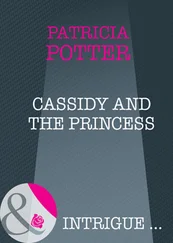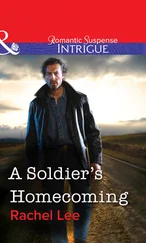She missed him. He was fearless and always had a joke on his lips. He was probably the only person who’d ever understood her need to write stories that needed to be told. That was her source of adrenaline, just as photography was his...
Stop thinking about the past.
She dropped the rod and went to the window. She stared out at the manicured lawn and towering trees in the backyard. The vivid reds and oranges stood in stark contrast to the colorless rocks and sand of much of the Middle East. So why couldn’t she appreciate it? The house and grounds felt like a prison.
It had been nearly four months since that bloody afternoon in Syria. She was lucky not to have bled to death. The red-hot metal had cauterized the wound, and Rick had cradled her body to keep the metal from moving until they found a doctor among the refugees. She’d been patched up enough to get to Turkey, where she received further medical treatment, and was sent home to Colorado.
Following two operations on her shoulder, she’d needed weeks of intense therapy. Her mother begged her to move into the family home, which was close to the rehab center.
She’d resisted at first. With the exception of several brief visits with her mother, she’d not been home since college. She’d been overseas for the last eight years, five of them in the Middle East. Moving back at thirty-two was humiliating.
But staying there for a few weeks was the logical decision. She couldn’t even dress herself without going into elaborate contortions.
Recuperating in a happy home would have been difficult enough, but this house was not happy. Her father was rarely there, and when he was, he usually went straight to his study. Her mother drank too much wine when she wasn’t at charity functions, and probably when she was, too. Her smile was a little too bright. Jenny’s journalistic eye saw the pain she tried to hide.
On the rare weekends her father returned from San Francisco, where his company kept an apartment for him, he couldn’t stop reminding her that he had warned her not to go. The Middle East was no place for a woman. Why couldn’t she be like her two sisters?
According to her father, journalism was no profession for his daughter. No opportunity to marry an up-and-coming husband, as her sisters had, and have children.
But then Jenny knew she’d always been a disappointment to him.
From the time she was old enough to walk, she’d run after fire engines or any other kind of excitement. At ten, she’d saved her allowance to buy a battered set of encyclopedias at a used book sale, and by twelve she’d read through them, along with finishing the reading list for the fifth, sixth and seventh grades. In lieu of dancing lessons, she headed for the library. The librarian was her best friend.
Her parents hadn’t been concerned when she announced at age eleven that she wanted to wander the world, rather than get married, assuming her declaration was just a child’s wild fancy. They became more concerned when, at sixteen, she announced she was going to be a journalist and, at seventeen, attended a lecture by a renowned journalist at the University of Colorado, instead of going to the junior prom.
More than anything else, she’d wanted to be on her own, free to fly like a bird...
And she had.
Would she ever fly again?
* * *
THREE MORNINGS LATER, Jenny woke to pounding at the door. Her brain was foggy. Daylight poured through the window. She glanced at the clock and jerked upright. It was ten in the morning, but then she hadn’t gone to sleep until 4:00 a.m. She’d been caught up in an idea for a story.
More impatient knocking, and then the door burst open. Her sister Lenore walked in.
Jenny stared at her. “I thought you were in San Francisco.”
“Charlie and I flew in this morning,” she said.
“Charlie?”
“Charlotte, your niece. She announced last year she wants to be called Charlie.”
“How did our parents take the announcement?”
“They ignored Charlie’s edict, of course, and warned me that she might, of all horrors, take after you.”
Jenny chuckled. This was a different side of Lenore. But then, except for a brief visit at the hospital a few months ago, she hadn’t seen her sister in more than five years. “Mother didn’t say you were coming,” she said.
“She didn’t know,” Lenore said. “Charlie’s downstairs with her now.” She scrutinized Jenny. “You look a lot better than you did a few months ago. But you really have to do something with that hair.”
“Gee, thanks. I missed you, too,” Jenny replied. Her hair probably was a mess after sleeping on it. It was uncontrollably curly and a real pain to brush with her left hand.
“You never did like lies. Even little ones,” Lenore said as she eyed Jenny critically. “You know, your hair would look really cute if you cut it shorter.”
“I would look like Little Orphan Annie,” Jenny retorted, not admitting that she needed a new hairstyle, one that she could manage with her injury.
Lenore laughed, but it sounded hollow. “No, you wouldn’t. It would look great on you. I couldn’t get away with it, but you could.” She paused, and then she added awkwardly, “How are you feeling? Really?”
“Good,” Jenny lied. “I’m hoping to leave soon. I want to get back to work.”
“Is your shoulder healed enough?”
“I can manage most activities now. The problem is driving. A sudden movement can nearly paralyze my arm, but I’m working on it.”
“You’re not planning to go back to the Middle East?”
“I’m not that delusional,” Jenny said. “But I haven’t completely been idle. Thanks to the internet, I’ve been researching some stories I can do here in the States.”
“Anything in particular?”
She nodded. “Horse therapy.”
“Horse therapy?” Lenore echoed. “Therapy for horses?”
“No,” Jenny said patiently, unsure whether her sister was kidding. “Equine therapy for veterans. I was looking at various therapy programs and found a number that involved horses. I knew there were equine programs for kids with autism and disabilities. I didn’t know how many are available for veterans. It could make a great story.”
Lenore studied her for a moment. “Does this interest have anything to do with your nightmares?”
“Mom told you?” Jenny asked.
“She’s worried about you.”
“I’m worried about her, or I would have left by now,” Jenny said. “She’s drinking too much. I suppose you know our father rarely comes home these days. He’s living full time in San Francisco.”
“I might be able to help you there. Charlie and I are moving back to Denver. Doug and I are getting a divorce.” It was said in a monotone voice, but Jenny saw the pain in her eyes.
“A divorce?” Jenny couldn’t hold back her surprise. “I thought you and Doug were the perfect couple. What happened?”
Lenore shrugged. “The old, old story. He found someone younger. And thinner. A friend told me he was cheating. I didn’t believe it at first, but I hired a private investigator. He produced a lot of photos. Doug didn’t even try to deny it. I think he was actually relieved. He just didn’t have the guts to ask for a divorce, and he didn’t want to share any money. The photos, though, bought me a nice settlement.”
“I’m sorry, Lenore. I really am.” Jenny didn’t add that she thought Lenore was better off without Doug. She’d never liked him. He was an executive in their father’s company. Too good-looking. Too oblivious to other people, unless they could do something for him. Too much like her father.
“The settlement will give me enough to buy a condo,” Lenore said, “and Charlie and I are moving here to be close to Mother. I’ll have to go to work.” She hesitated. “I got a real estate license in California and made some sales. I was pretty good at it. More important, it’s the kind of job where you control your own hours. I can be there for Charlie and for Mother.”
Читать дальше












